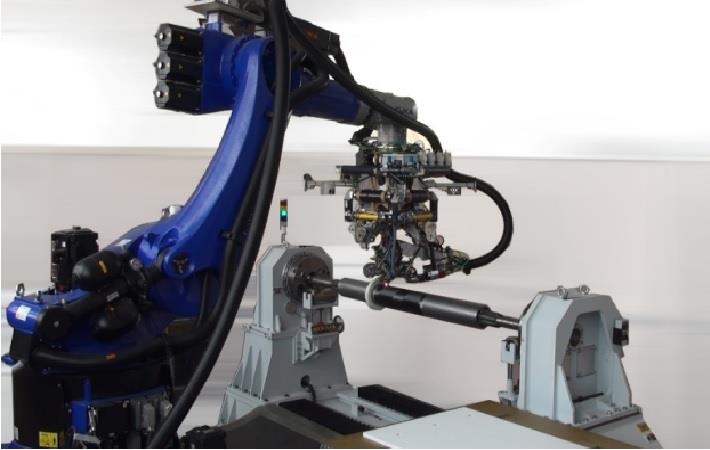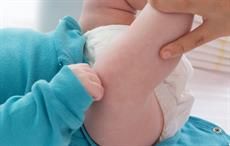Brandenburg University of Technology (BTU) Cottbus has got a, AFP system from Mikrosam. The 8-axes robotic AFP machine is capable of automated and precise placement of thermoplastic fibres, thermoset prepregs, and dry-fibre material. This gives the university research and development capabilities to make complex 3D parts made of composite materials.
The system was delivered to the Department of Lightweight Design and Structural Materials (LsW) at BTU. Such research will contribute to the development of additive manufacturing of complex components with structured functional surfaces as required in industries such as aerospace and automotive.Brandenburg University of Technology (BTU) Cottbus has got a, AFP system from Mikrosam. The 8-axes robotic AFP machine is capable of automated and precise placement of thermoplastic fibres, thermoset prepregs, and dry-fibre material. This gives the university research and development capabilities to make complex 3D parts made of composite materials.#
Mikrosam offers one of the most cost-competitive proven AFP (Automated Fibre Placement) solutions on the market with many advancements for maximum productivity. The system at BTU Cottbus has highly capable AFP head with uni- and bi-directional placement on open 3D shapes and closed mandrel surfaces, such as pipes and vessels. The time-consuming process of switching material and technology to another on a single AFP head is now reduced to minutes: via simple spool change, and replacement of the laser with IR heating source. The automatic head exchange system as an option allows customers to invest in new AFP/ATL heads in the future for use on the same equipment.
Further capabilities are added for thermoplastic composites – next generation of composite materials which are gaining a lot of interest in the aerospace and automotive industries. Using a laser heating source, precise temperature control, and a closed-loop process, Mikrosam’s AFP machines produce in-situ consolidation with better mechanical properties. Mikrosam’s extensive research in this area allows customers to increase the use of thermoplastic composites which are recyclable and more environmentally friendly.
Additionally, the dry-fibre placement capability on the same AFP head opens possibilities for developing and testing new and complex pre-forms for aerospace and automotive needs.
“With this is advanced AFP system we continue the tradition of offering customers the most flexible and cost-effective ?FP and ATL solutions. The possibility of using multiple materials on the same equipment with very short down time should increase the span of research applications and demonstrate new technologies to industry partners which are developing new, high-quality composite structures, and fuel the demand for more composite parts,” stated Dimitar Bogdanoski, sales manager at Mikrosam AD.
The advanced programing and control software architecture power the complete automaton of the AFP machine. MikroPlace makes the simulation of composite parts and QCS (Quality Control System) offers continuous improvement via data monitoring and traceability.
To complement the AFP system, the LsW department also received equipment for wide and narrow prepreg tape slitting and rewinding to prepare spools. The slitting and rewinding machine is designed to work with thermoset and thermoplastic prepregs to produce spools with various sizes and re-winding styles, for example from 300mm wide tape down to ¼” tapes used in AFP. This equipment cell is a cost-effective solution for integrating prepreg into narrow tape production and AFP process. (SV)
Fibre2Fashion News Desk – India


